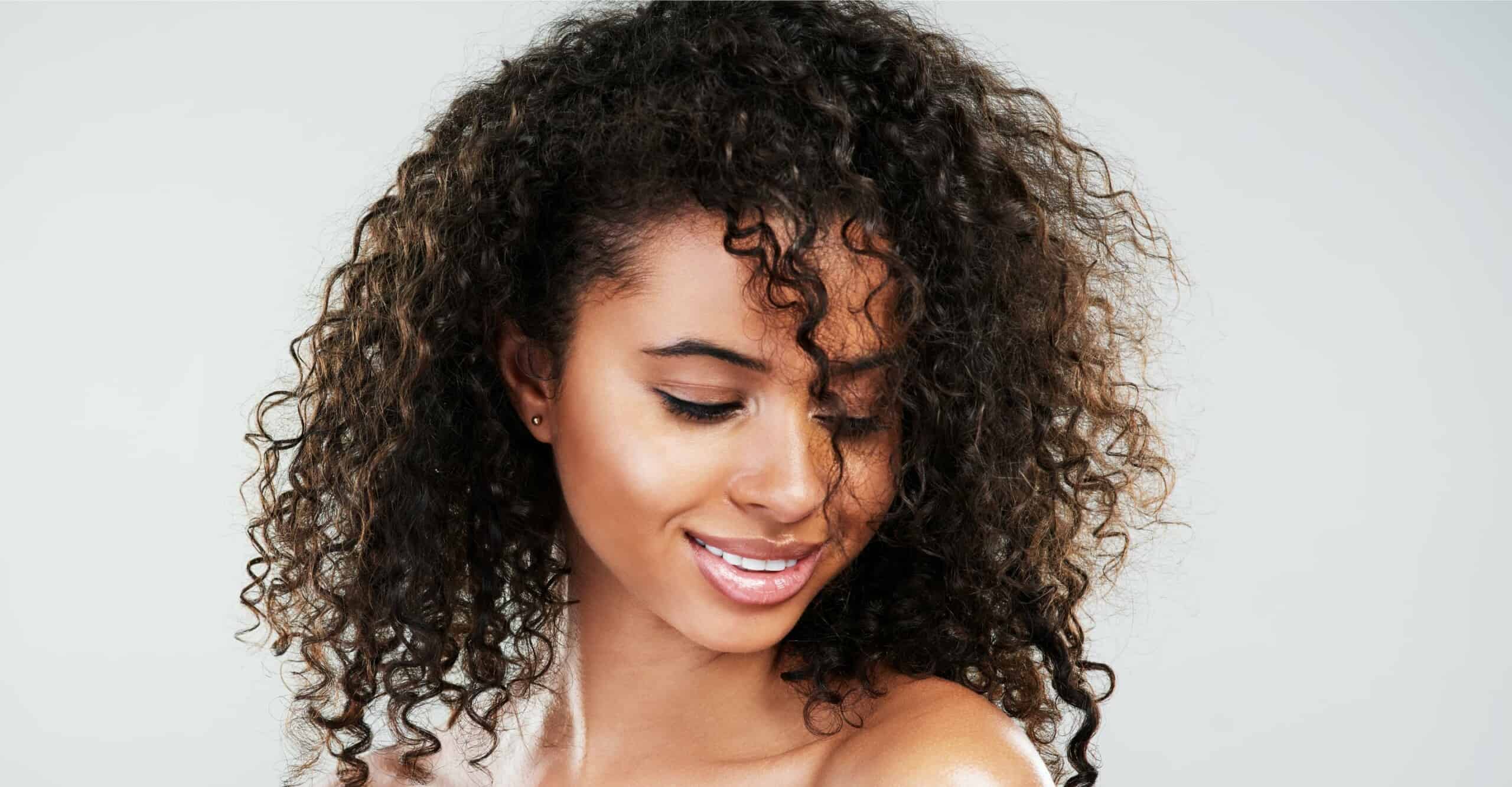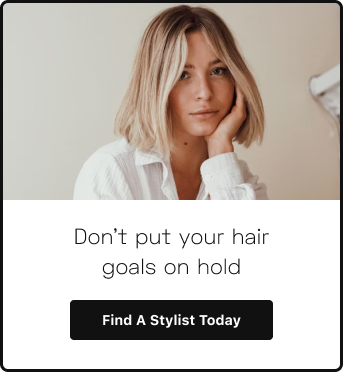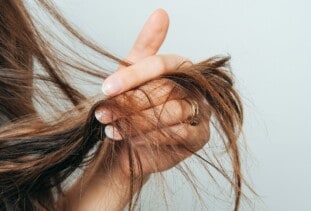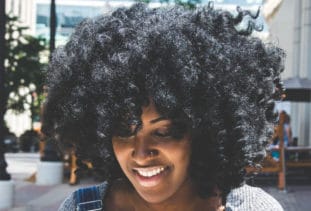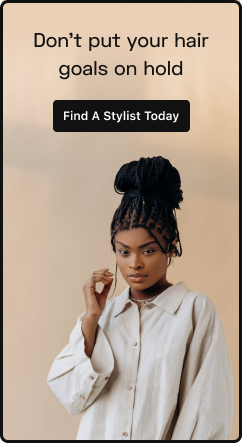Virgin hair is hair that’s never been chemically treated with products like hair dye and bleach. It’s also a hair colorist’s dream hair type to work with and one of the best types of hair to use for weaves and extensions.
If you’re in the market for a new weave, then you’ve probably heard terms like virgin, remy, and human hair when looking for hair for your next weave appointment. It can get a little confusing to understand the differences when people start to use these terms interchangeably.
Here we’ll focus on what virgin hair is and how it differs from other types of weave and extension hair.
Is virgin hair the best hair for weaves and extensions?
Virgin hair is your best choice if you want a long-lasting style and hair that looks healthy and natural. This type of hair lasts longer than synthetic and chemically treated hair since it retains its cuticles, typically comes from a single donor, and hasn’t been exposed to damaging chemicals. These are all factors that contribute to healthy weave hair.
However, virgin hair might not be for you if you’re on a limited budget or if you’re in the market for a short-term look. Virgin hair is expensive since it’s high quality and lasts longer than other types. You can save some money with synthetic or non-virgin human hair if you aren’t planning to reuse it. For example, virgin hair may not be the best choice for quick weaves since it’s not easy to reuse the hair.
Virgin hair also isn’t the best option if you don’t have black or brown hair. It’s not easy to find virgin blonde or red hair since there is a lack of donors with that natural hair color. If you’re not a brunette, your next best option is to find authentic remy hair that’s been dyed to match your hair color.
Although virgin hair isn’t widely available in all colors, it does come in a variety of textures. Many virgin hair bundles go through a steaming process to achieve different types of curls and textures. If you’re looking for hair that’s never been manipulated or processed, you’ll want to look for raw hair. Keep in mind that raw hair is difficult to find and more expensive than virgin hair.
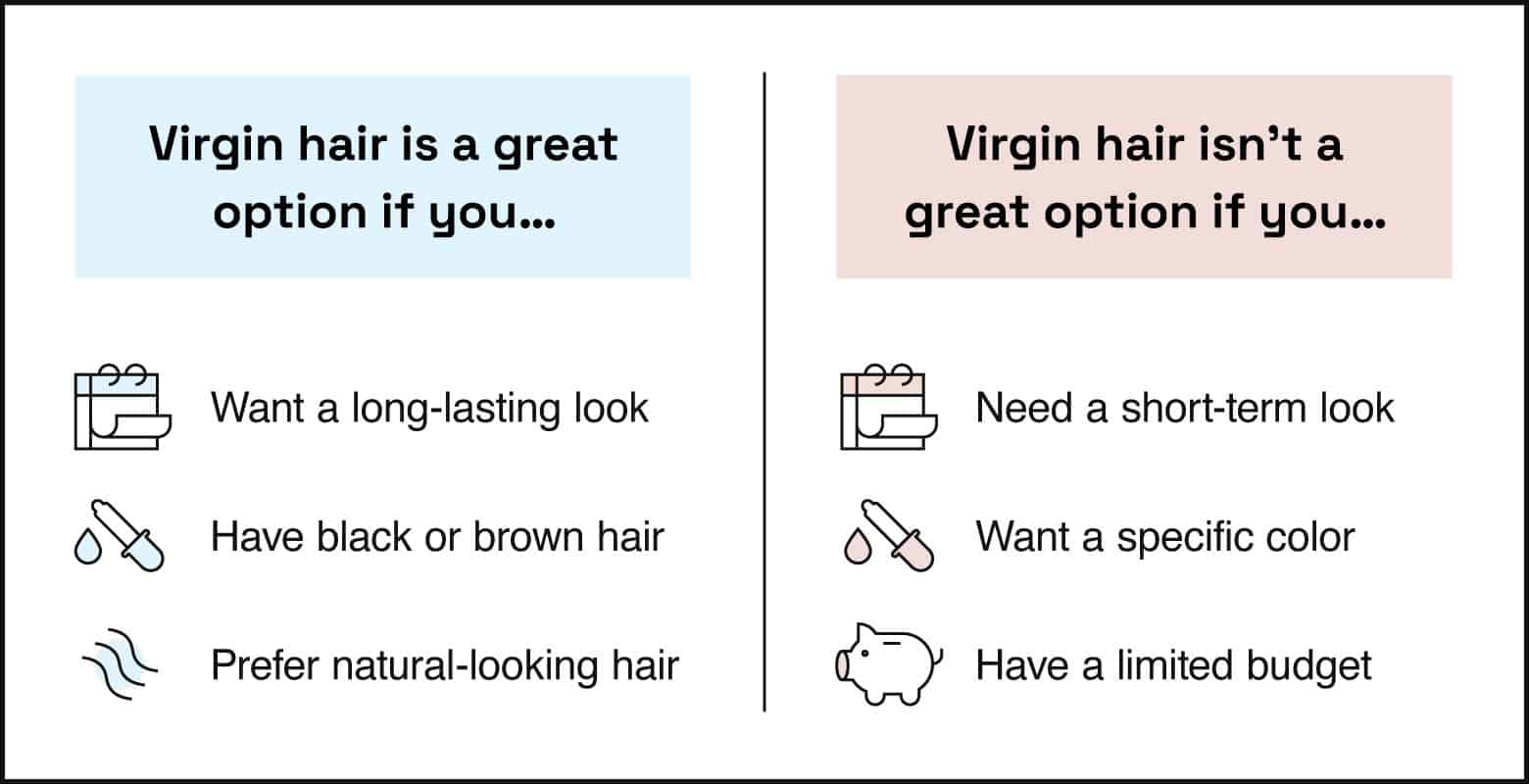
Is all human hair virgin hair?
All virgin hair comes from human hair, but not all human hair is virgin hair. Human hair stops being virgin when it’s gone through some sort of chemical processing.
Although human hair has a reputation for being high quality, that’s not always the case. For example, you can get a bundle that’s 100 percent human hair, but it could come from different donors and sources. It may also be missing its cuticles.
Human hair bundles can also get easily tangled if the strands aren’t properly aligned from root to tip. To ensure they’re aligned, you want authentic remy hair.
What is the difference between virgin and remy hair?
Remy hair is high-quality human hair that may or may not have been chemically processed. Remy hair bundles can use virgin hair, but remy hair may also use non-virgin human hair. If you’re new to hair weaves, it can be tough to tell the difference since they can look similar. For example, both authentic remy hair and virgin hair have the cuticles aligned to prevent tangling.
Unfortunately, there are quite a few brands out there that mislabel hair. If it’s important for you to get authentic virgin remy hair, do some research by searching online and asking around. You can also get recommendations and help from your stylist on authentic and trustworthy brands.
Are yaki hair and remy hair the same?
Yaki hair is not the same thing as remy hair, although you may have heard the terms used to compare different types. Remy hair refers to the quality and source of the hair. Yaki hair is a type of texture of a hair bundle. Yaki hair can be virgin, non-virgin, or synthetic. Other popular textures are body wave, water wave, and deep wave hair.
How long does virgin hair last?
Virgin hair can last for a year or more based on how you care for it and the ways you use the hair. For example, if you don’t wash and moisturize the hair, it’ll get more brittle and weak over time. The method in which you get them installed also determines how long your hair will last. Sew-in weaves generally last the longest and tape-ins have the shortest lifetime.
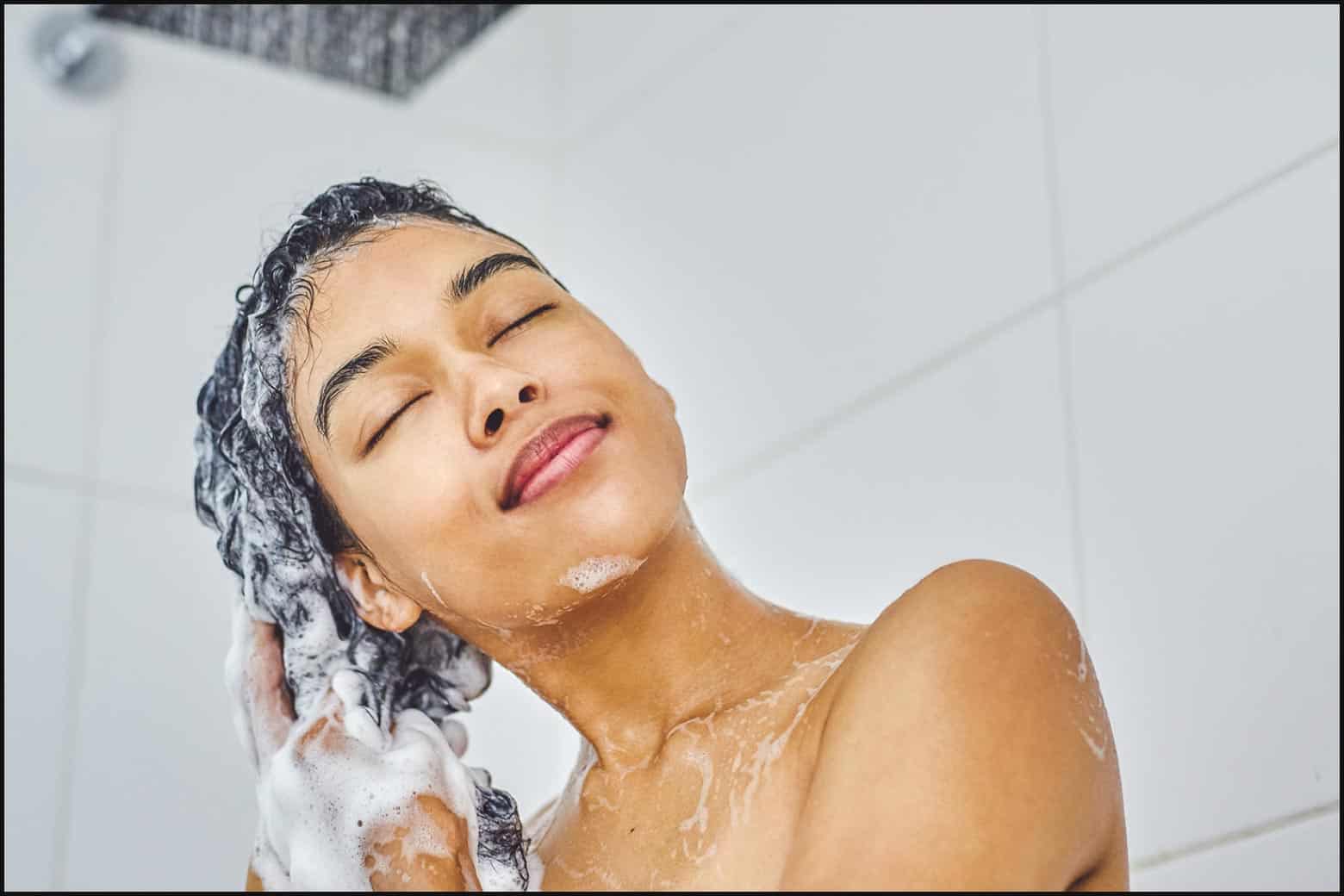
How can I care for virgin hair?
The best way to care for virgin hair, along with any type of hair, is by establishing a hair care routine with regularly scheduled washes and conditioning. You also need to incorporate protective styles and take extra steps to protect your hair from the elements. Below are some tips for caring for virgin hair.
- Gently detangle your hair before you wash it. Detangling your natural hair and weave hair prevents breakage and helps you distribute moisturizers more evenly.
- Regularly wash both your natural hair and weave hair. Removing excess oils, sweat, and debris will help your hair last longer.
- Dial back the hot water when rinsing your hair. Too much hot water can strip your hair of its natural oils, dehydrate your hair, and leave you with frizz.
- Use deep conditioners and hair masks in your routine. Moisturizing is especially important for weave hair since it can’t get nourishment from your scalp’s natural oils.
- Wear protective looks every once in a while. Braided styles, twists, and hairstyles with scarves or wraps can protect your hair from the elements and from getting tangled.
- Wrap your hair in a silk or satin bonnet. This will protect your hair from tangling and help retain moisture.
- Sleep on a silk or satin pillowcase. If you can’t get a hold of a bonnet or just want extra protection, switch out your pillowcase.
Do I have virgin hair?
You have virgin hair if you’ve never dyed, bleached, or had any chemical processes done to your hair. Once you have, your hair is no longer considered virgin.
Although you can’t get virgin hair back, you can take some steps to transition back to your healthy, natural hair. The big chop is a common choice if you’re ready to cut out chemicals for good and want a quick way to start fresh. With this method, you’ll cut off all of your damaged hair so you’re left with only your healthy, natural hair.
If you’d rather not take such a drastic step, there are many other ways you can transition to your natural hair without cutting it. Start by putting a pause on chemicals and heat styling. Then, work more moisturizing into your routine to give your hair some much-needed nourishment. Small trims are also great for snipping away split ends and promoting stronger strands.
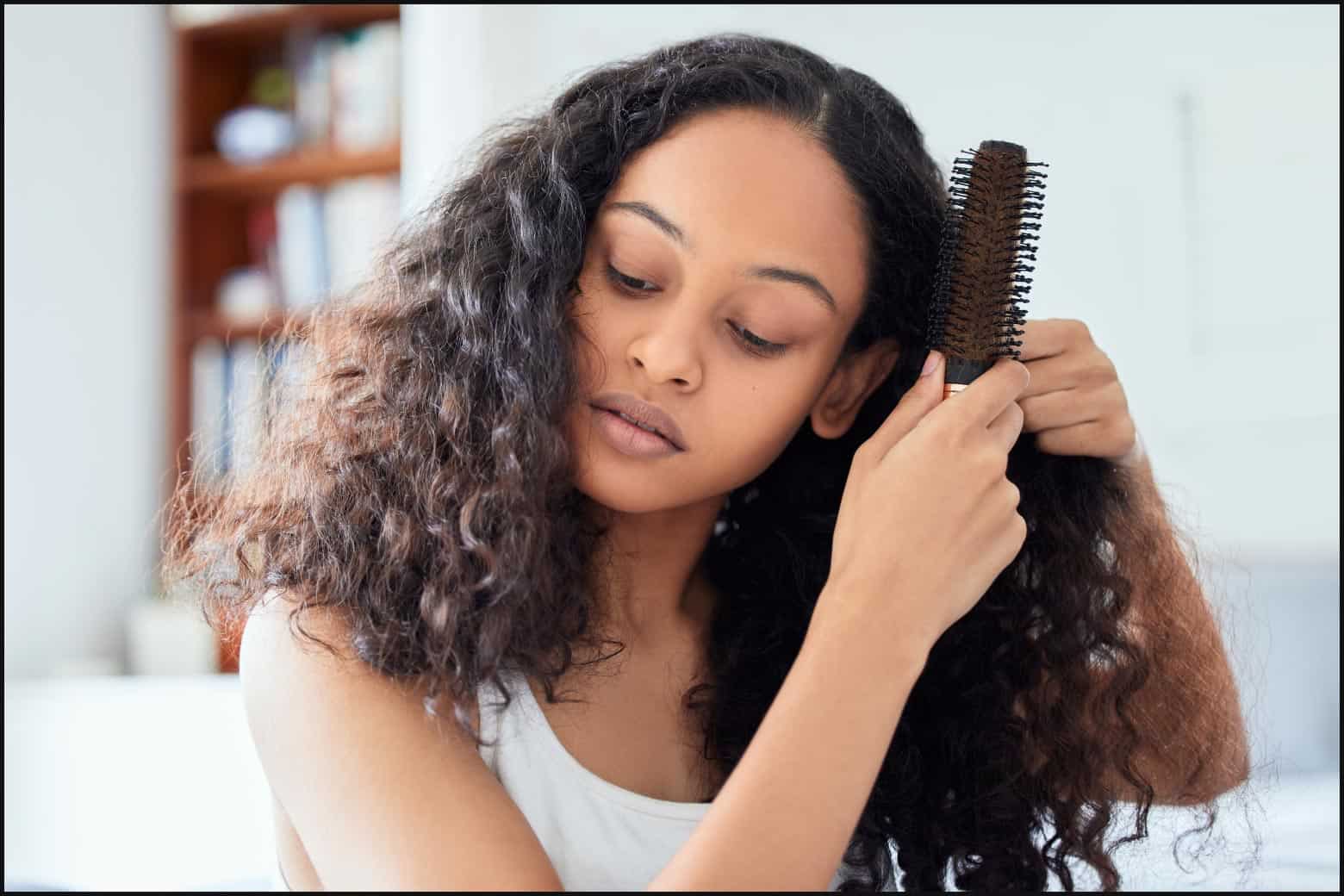
Virgin hair is a great investment if you’re planning to use it in a weave or as extensions for a long time. Finding a great weave Pro is just as important as finding the right hair. They can give you tips for the bundle you bought and for the different styles you have in mind.
We have many weave Pros who are happy to help you on your hair journey, especially if you’ve never gotten a weave before. When you’re ready, look through our community of weave Pros to find someone in your area who can help you achieve your dream look.
